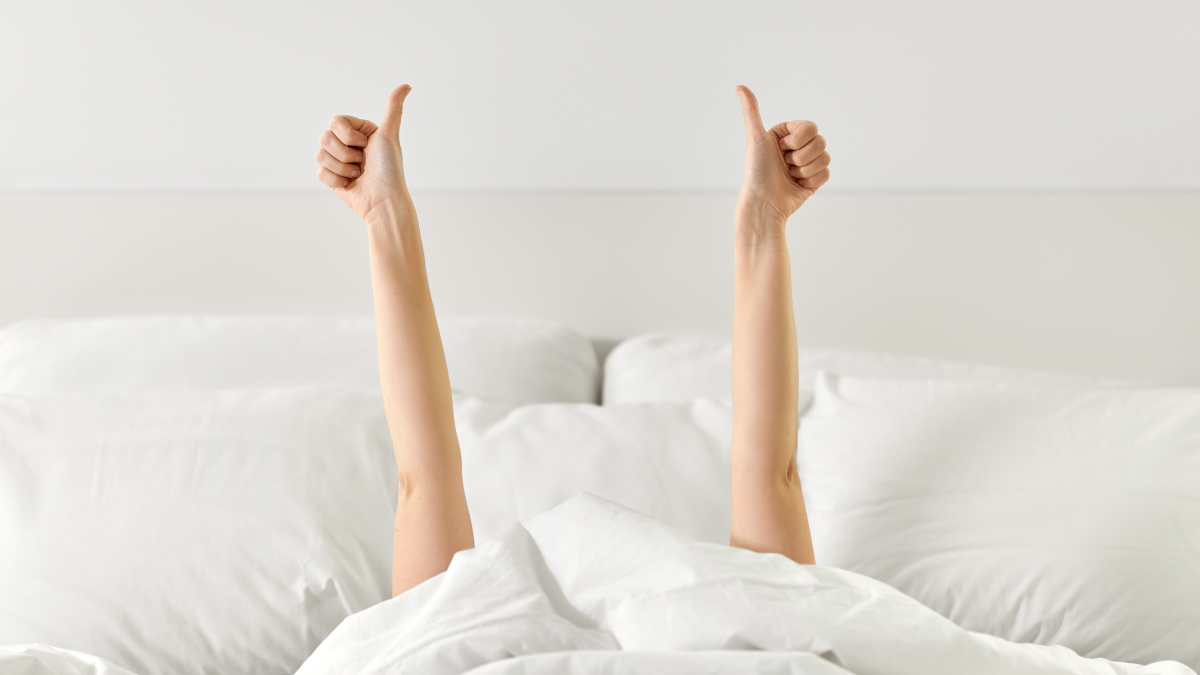Dr Eleanor De Ath-Miller on setting up good habits for better quality rest.
“Scientists have discovered a revolutionary new treatment that makes you live longer. It enhances your memory … It lowers food cravings. It wards off colds and flu. It lowers your risk of heart attacks and stroke, not to mention diabetes. You’ll even feel happier, less depressed, and less anxious. Are you interested?” -Matthew Walker, author of Why We Sleep .
You may have guessed it—this ‘new treatment’ is sleep.
We know that sleep helps to repair our bodies and minds. It supports our immune systems, releases chemicals that support brain health and helps balance blood sugar levels (so we don’t crave those high calorie foods as often).
When we get enough sleep, we think more clearly and we’re less irritable.
We also know that in our modern world, most adults don’t get enough sleep. Many of us believe that feeling tired is just part of life. From the age of 20, adults need 7-9 hours sleep with some people falling just either side of this range.
Here are 12 science-based tips to help improve sleep health that are easy to add into your day. A good way to start is to focus less on the exact amount of sleep you are getting and focus more on setting up good habits for better quality rest.
Morning
• Wake up around the same time every day: a regular pattern helps us sleep better.
• Spend some time outside: Natural morning light sends messages to your brain that help you feel more awake and keep your sleep cycles on track. Try a quick walk.
• A short mindfulness exercises can help if you feel sluggish and sleepy when you wake.
During the day
- Fit in some exercise: any physical activity helps to improve sleep. Try lower intensity exercise in the three hours before bed because moderate-high energy sessions can make it harder to go to sleep.
- Give yourself 8 hours between your last shot of caffeine (including cola and dark chocolate) and bedtime. For example, if you want to be asleep around 10pm, have your last coffee by 2pm. Switch to decaf or other drinks in the afternoon and evening.
- A short nap before 3pm can help if you are low on sleep—20 minutes is best. (If any sleep during the day makes it harder to fall asleep at night, napping isn’t for you at the moment).
Evening
- Turn on ‘Night Mode’ on the devices you use after dusk to automatically dims the screens.
- Challenging mental activities in the time before bed affect sleep: give yourself time to switch off from work, have difficult conversations at other times, and have some down time from gaming.
- Have a ‘wind down’ routine: do the same activities every night as you get ready for bed, so your brain knows it’s nearly time to rest.
If your mind is very busy
- Before bed, add tasks to a ‘to do’ list and jot down any issues that are worrying you. If there’s a clear solution to a problem, write it down. If there’s nothing you can do, it’s time to let it go until tomorrow. You will think more clearly and make better decisions after some rest.
- We can’t force sleep. If you are not asleep after 20 minutes, get up and do something quiet and relaxing that doesn’t involve screens. Reading, yoga or listening to music. Head back to bed when you are sleepy.
- Rest is still good for us even if we are not sleeping. Remind yourself that you’re doing your best and keep focusing on other self-care routines.
Useful resources
Insight Timer (Progressive Muscle Relaxation and more): insighttimer.com/lnejad/guided-meditations/progressive- muscle-relaxation-for-sleep
Breathing Exercises:
www.verywellmind.com/breathing- exercises-for-sleep-4589393
Headspace Sleep 101:
www.headspace.com/sleep/sleep-101
Bedtime switching off visualisation:
www.youtube.com/watch?v=3o9etQktCpI&t=16s
Headspace Sleepcasts:
www.headspace.com/sleep/sleepcasts
1-Minute Morning Meditation:
www.headspace.com/meditation/morning-meditation
The latest sleep science information was taken from:
The Sleep Health Foundation (Australia), The Sleep Council (UK), The Sleep Charity (UK).



